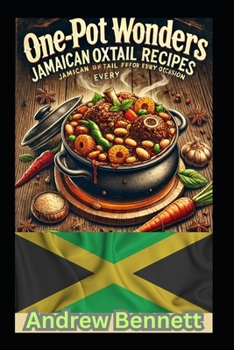One-Pot Wonders: Jamaican Oxtail Recipes for Every Occasion
Oxtail has a rich history in Jamaican cuisine, dating back to the island's colonial era when it was often considered a byproduct of cattle farming. Initially, oxtail was a humble cut of meat, primarily consumed by the poorer classes who could not afford the more expensive cuts.
Over time, however, it evolved into a beloved staple of Jamaican cooking, renowned for its rich flavor and tender texture when slow-cooked. The transformation of oxtail from a lesser-known ingredient to a centerpiece in many traditional dishes reflects the adaptability and creativity of Jamaican culinary practices.
The cultural significance of oxtail extends beyond its taste; it embodies the spirit of resilience and resourcefulness found in Jamaican society. Cooking oxtail is often a communal activity, bringing families and friends together to share in the preparation and enjoyment of this hearty dish.
Whether it's a Sunday dinner or a festive celebration, oxtail is frequently featured on the table, symbolizing unity and tradition. The long cooking process allows for the development of deep flavors, making oxtail a dish that not only satisfies hunger but also fosters connections among those who gather to enjoy it.





